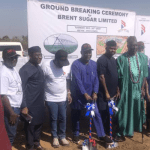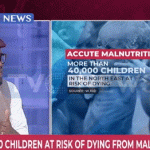The National Council on Nutrition has approved a 5-year nutrition action plan that will guide the implementation of interventions and programmes to address the problems of hunger and malnutrition across all sectors in Nigeria.
According to a statement issued on Friday by the Media Aide to the Vice President, Laolu Akande, the plan is part of the efforts to further improve the wellbeing of Nigerians.
The action plan titled the “National Multi-Sectoral Plan of Action for Food and Nutrition (NMPFAN) 2021-2025” was approved by the council at its virtual meeting on Tuesday.
The council chaired by the President, has its membership to include Chairman of the Nigerian Governors Forum, Health Minister, Minister of Water Resources, the Minister of State, Budget and National Planning, , the Nutrition Society of Nigeria, development partners, organized private sector, Civil Society Organisations, the former Emir of Kano, Sanusi Lamido, among others.

Mr Akande said the approved plan will reduce the proportion of people who suffer malnutrition by 50%; increase exclusive breastfeeding rate to 65%. It will also reduce stunting rate among under-five year olds to 18% by 2025 through the scaling up of priority high impact nutrition specific and nutrition sensitive interventions.
The plan recommends the adoption and implementation of strategies aimed at improving the nutritional status of Nigerians by tackling under nutrition and stunting, among others.
Mr Akande said Vice President Osinbajo welcomed suggestions for the adoption of extensive nutrition advocacy programmes to be driven by stakeholders across all levels of government and the private sector.
Chairman of the Nigerian Governors Forum, (NGF) and Ekiti State Governor, Mr Kayode Fayemi, said his colleagues endorse the plan.
Similarly, the former Emir of Kano noted that it was time to take nutrition issues more seriously.
On their part, stakeholders present at the meeting pledged their support for the implementation of the action plan aimed at addressing the menace of malnutrition in Nigeria.
Statistics shows that there has been a steady rise in the percentage of hunger in Nigeria since 2015. Nigeria hunger statistics for 2017 was 13.40%, a 1.9% increase from 2016. Nigeria hunger statistics for 2016 was 11.50%, a 1.9% increase from 2015. Nigeria hunger statistics for 2015 was 9.60%, a 1% increase from 2014.
It is believed that if this plan receives the required support, there may be a drastic reduction in the rate of hunger and malnutrition in the country.














